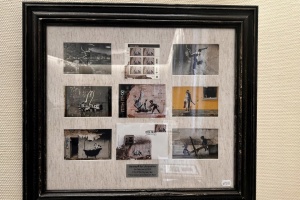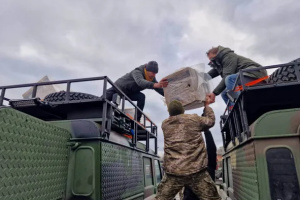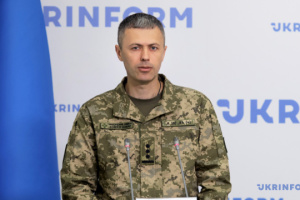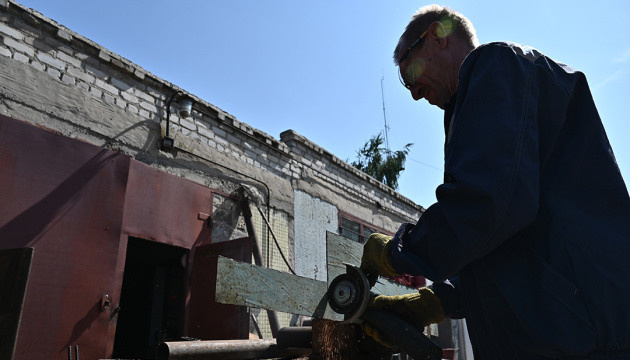
Rural community. Life near war
Mykhaylivka is located in the Zaporizhzhia Rayon of the Zaporizhzhia Oblast, and this puts it in unusual conditions. According to Tetiana Bordyug, head of the U-LEAD with Europe Regional Office in Zaporizhzhia, "the oblast is a rather special region during martial law. On its territory, we have actually rear-guard hromadas, temporarily occupied territories, and hromadas where hostilities are taking place." As for this particular rural community, according to the order of the Ministry of Reintegration No. 309, it, along with the entire Zaporizhzhia district, is included in the "List of territories where hostilities are (were) conducted".
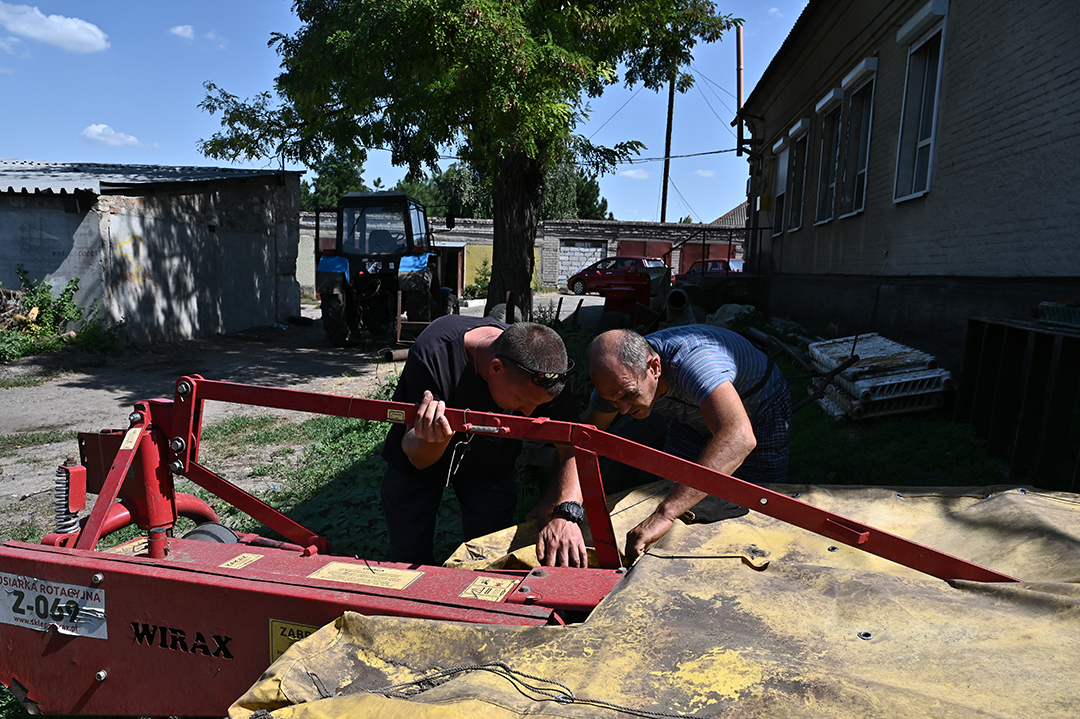
IN THE MIDST OF MARTIAL LAW
In practice, this situation of the community led to an unusually active population mobility. With the beginning of full-scale Russian aggression, about 3,000 people left the territory of the Mykhaylivska village community, and the same number of internally displaced persons entered. This was the first stage. Later, more IDPs arrived, and at the same time, those who left their homes after February 24 began to return to them. As a result (intermediate, I suppose), the community's population grew from the previous 7,500 to almost 9,000.
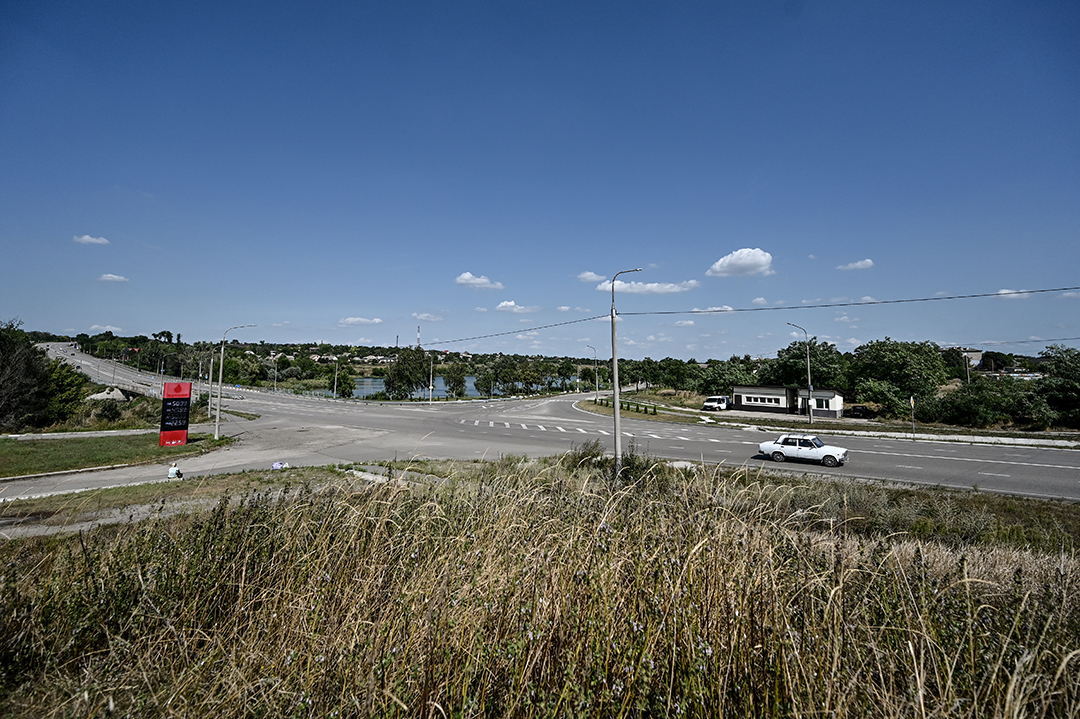
It is impossible to say that this did not affect the life of the hromada. As previously reported by the U-LEAD Program: "Since the beginning of the full-scale invasion, 13 out of 50 employees of the Mykhaylivska hromada have left Ukraine. The rest of the staff had to redistribute their existing responsibilities to be able to perform all routine tasks and respond to new challenges related to the war."
For example, Olena Komanyuk, who previously worked as a specialist in the financial department, took over all the relevant duties after her boss left and has been performing them alone for the past year and a half. According to her, the U-LEAD trainings helped her organize tax administration more efficiently (for example, create a taxpayer database) and advise other departments on how to redistribute tasks.
In particular, she advised specialists of the Education Department and helped them develop a system where an accountant checks and registers contracts with employees of educational institutions and suppliers, a procurement specialist publishes them in Prozorro, and a chief specialist submits contracts and all supporting documentation to E-Data. Olena also advised the social protection department on how to organize interaction with IDPs so that colleagues could cope with the new workload. When asked by Ukrinform how the community manages to survive in the current conditions, she answered:
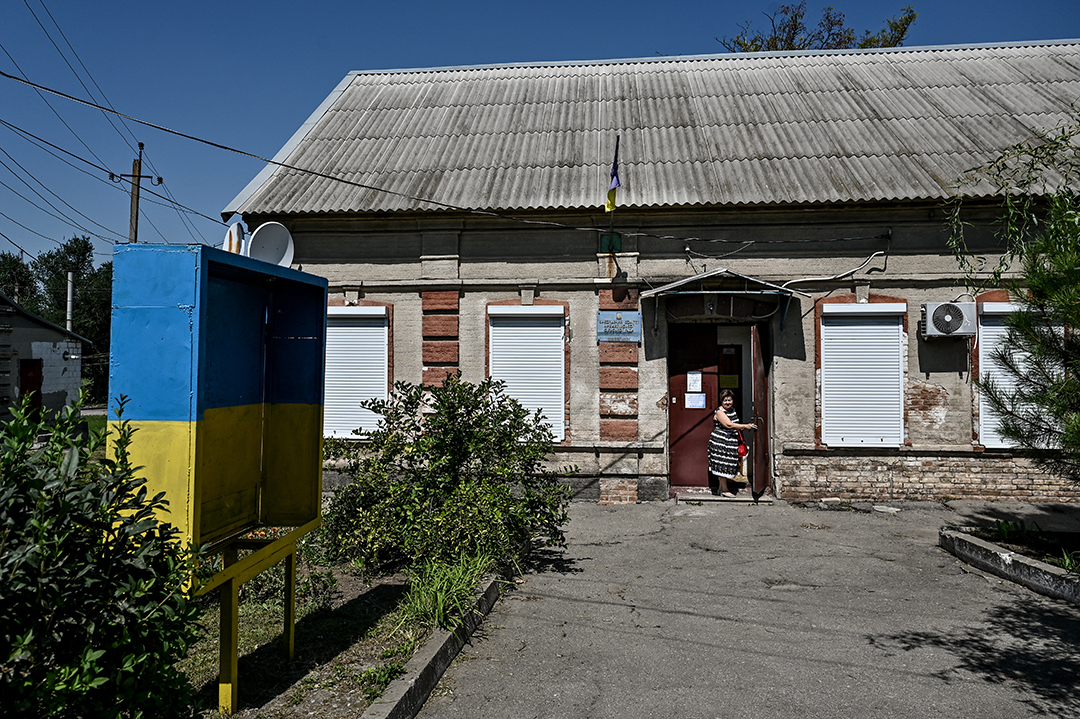
- We try to work with all taxpayers to ensure that they, too, pay the maximum amount of taxes whenever possible. This means working directly with taxpayers. We need to have some kind of budget revenues. Whenever possible, we repaired some road sections - those that were almost impossible to drive on. We were able to allocate one and a half million for these needs. We help people: we have maintained mandatory payments: compensation for hemodialysis; we have people who take care of disabled relatives. They are also entitled to payments; this year we are paying them one hundred percent, trying not to deprive people of these payments, because they are their livelihood. We are not cutting these expenses.
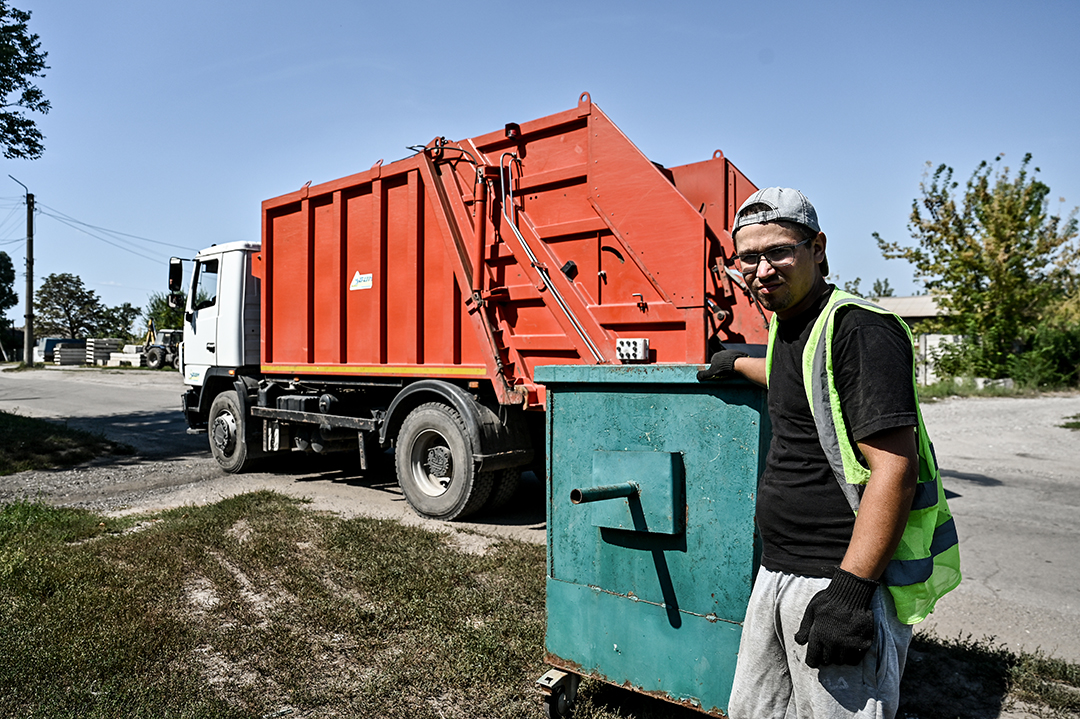
ASSISTANCE TO IDPS: SEARCH FOR HOUSING AND EMPLOYMENT
- "The Regional Office in Zaporizhzhia Oblast has been cooperating with the Mykhaylivska hromada since the voluntary amalgamation of the hromada," said Tetiana Bordyuh, "Now the hromada is located in a safer part of the Zaporizhzhia Oblast, if at least one territory in the region can be considered safe, so it has a large number of internally displaced persons. U-LEAD with Europe partially covered the needs of the hromada in IDP support in 2022 by providing the Shelter assistance package, which included a temporary shelter, water tanks, generators, equipment for shelter points, etc. But this is only a small part of what the head of the community, Alla Korol, and her team do for the community and its residents. Ms. Alla is a woman leader who is quite skillful in organizing the work of the community team and monitoring the development of specialists. I hope that our cooperation will continue and be useful.
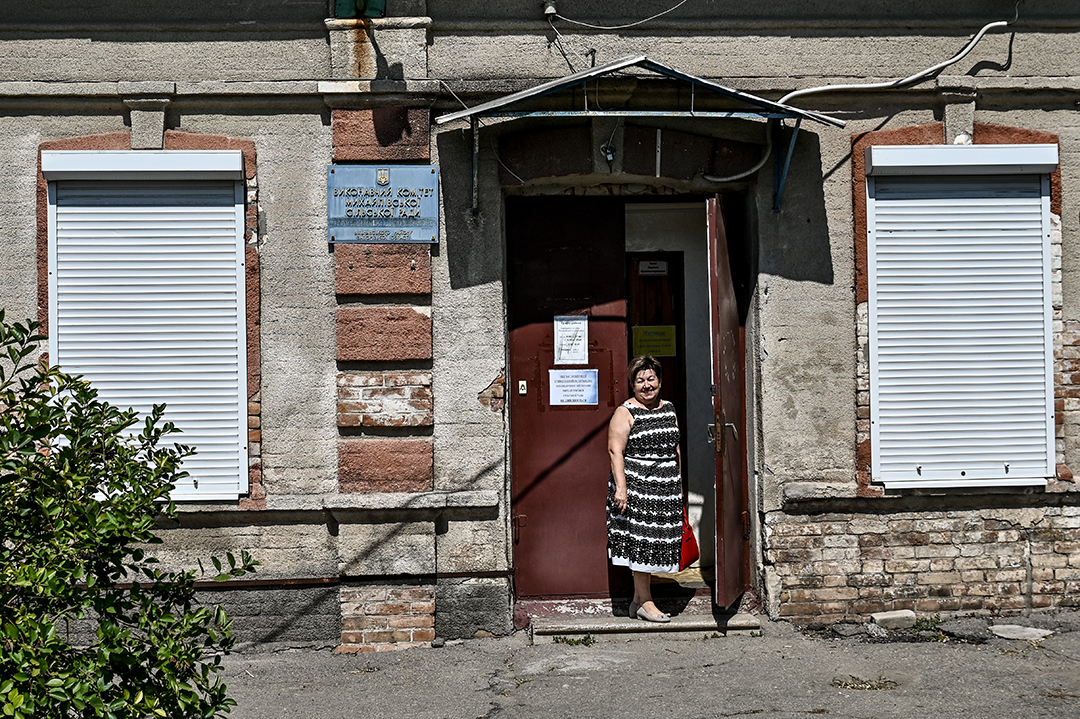
First of all, we found out the situation with the number of people who now live on the large territory of the community, which includes 15 villages.
- We already have 4,000 IDPs, and our residents are slowly returning. More than a thousand have returned. Today, almost 9 thousand people live in the community. We work with IDPs and help them resettle. Some of them resettle themselves. The main housing is private houses, private apartments and country houses. How do they find jobs? We make announcements, cooperate with our farmers, because our main employers are farmers. They also contact us: "Give us information, we need people." And we are close to the city of Zaporizhzhia, 12 kilometers away from Shevchenkivskyi district and 8 kilometers away from Zavodskyi district. IDPs have the opportunity to find employment in the city.
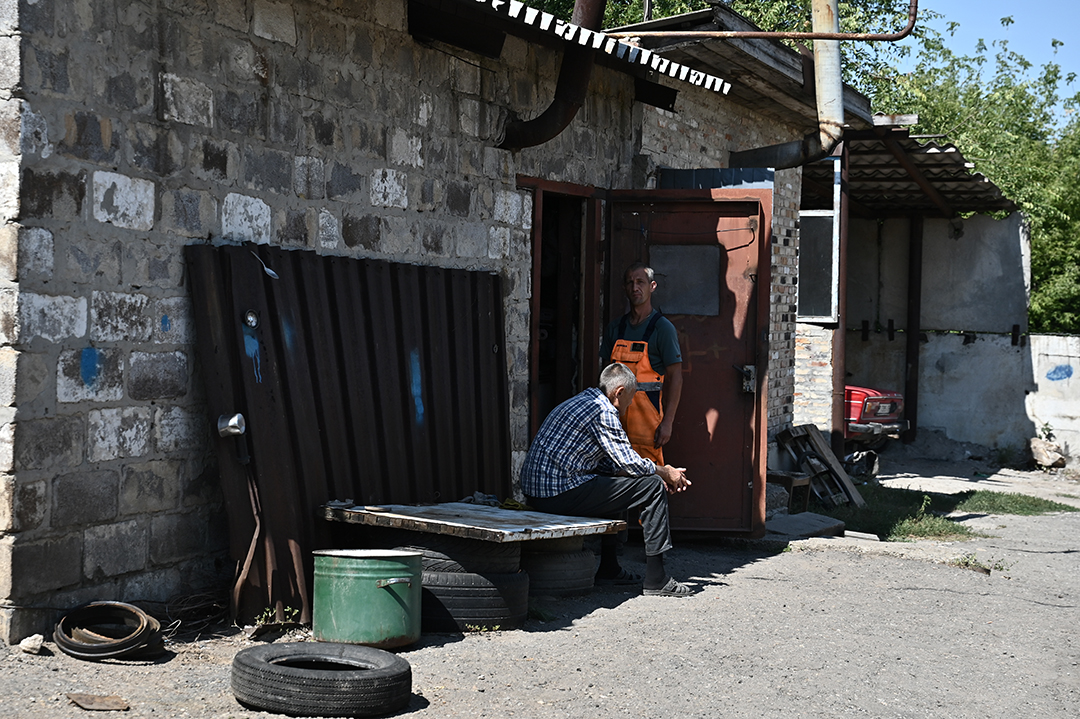
The community did not develop separate programs for IDPs, because since last year, after the beginning of the Russian invasion, there has been a big problem with budget execution because entrepreneurs received tax breaks.
- Only last month we fulfilled the budget because we had a subvention from a neighboring community. We are jointly implementing a project to build a water main. Since our village council was the developer of this project, and we financed it in full, 1 million 200 thousand, ourselves, they reimbursed us. After all, we will receive water through the new water supply system together. The construction work will be carried out by the Department of Housing and Communal Services of the regional administration.
The water pipeline project was developed in 2018, but only this year did the Reconstruction Fund receive funds.
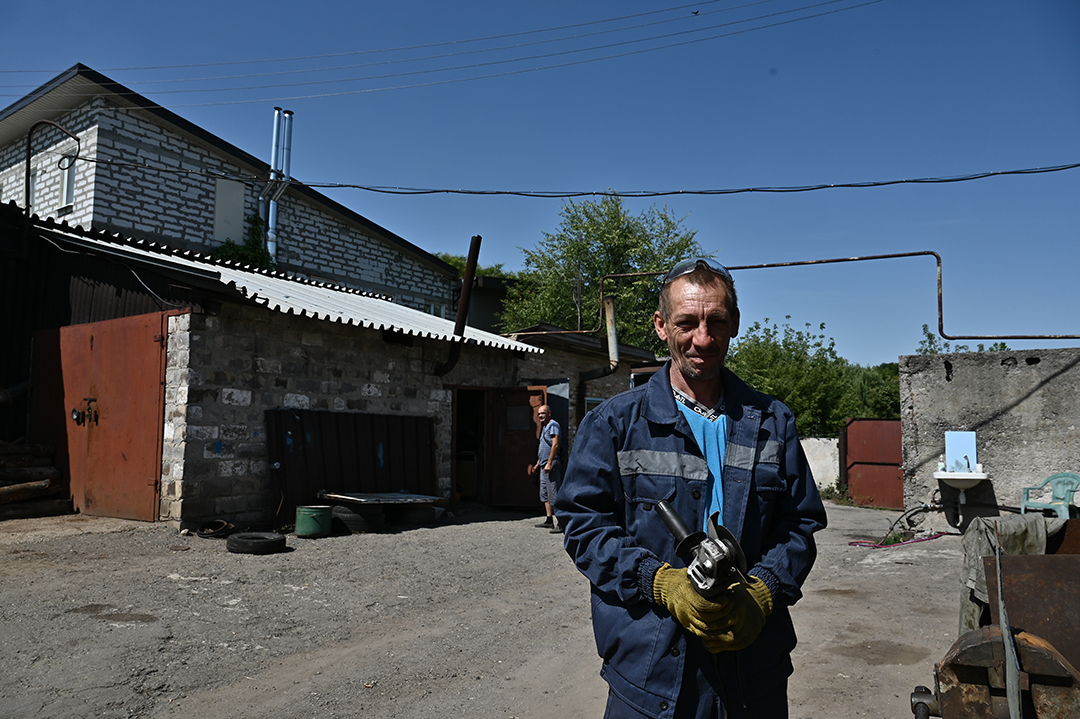
- At the same time, we have an old water supply system with water losses of 60 to 70 percent. We don't even bury the pipe because of the constant gusts. We haven't done anything on the new water supply system yet - the money has only just been given. The winner of the tender has been determined; they came to us only yesterday to determine where to start. Because the water pipeline runs through the land where sunflowers are still growing. They will start digging there only after harvesting it. Somewhere in September.
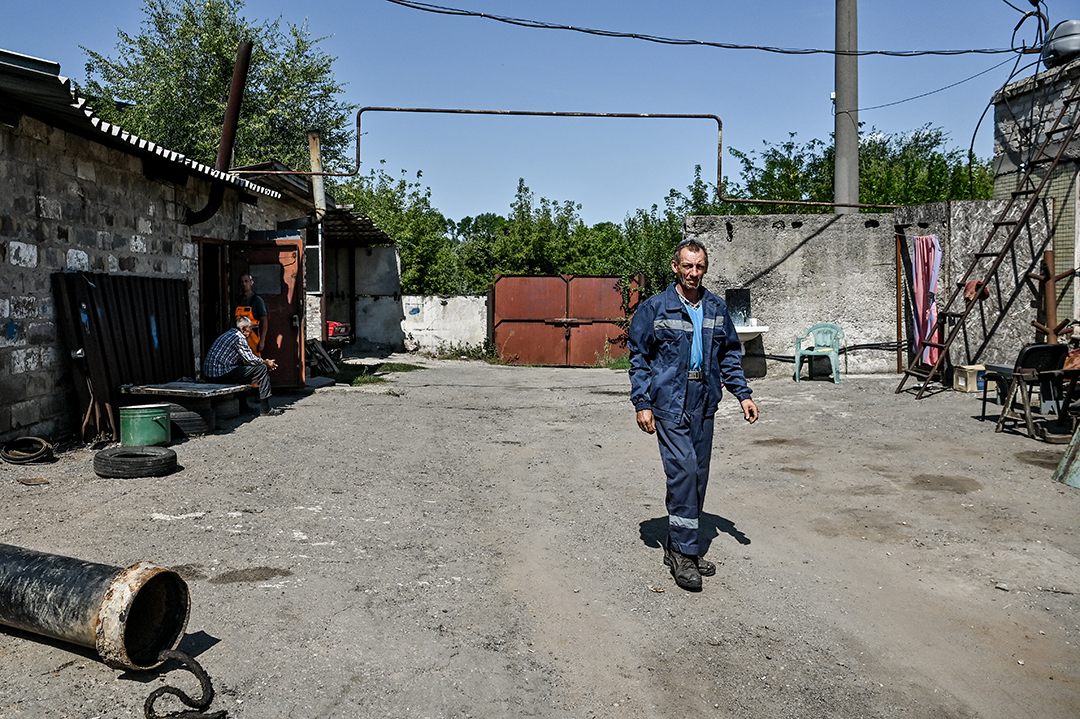
At that time, the community replaced 2 kilometers of pipe on its own. The couplings, the pipes themselves, and the equipment for soldering them were provided by the Norwegian Refugee Organization (NRC).
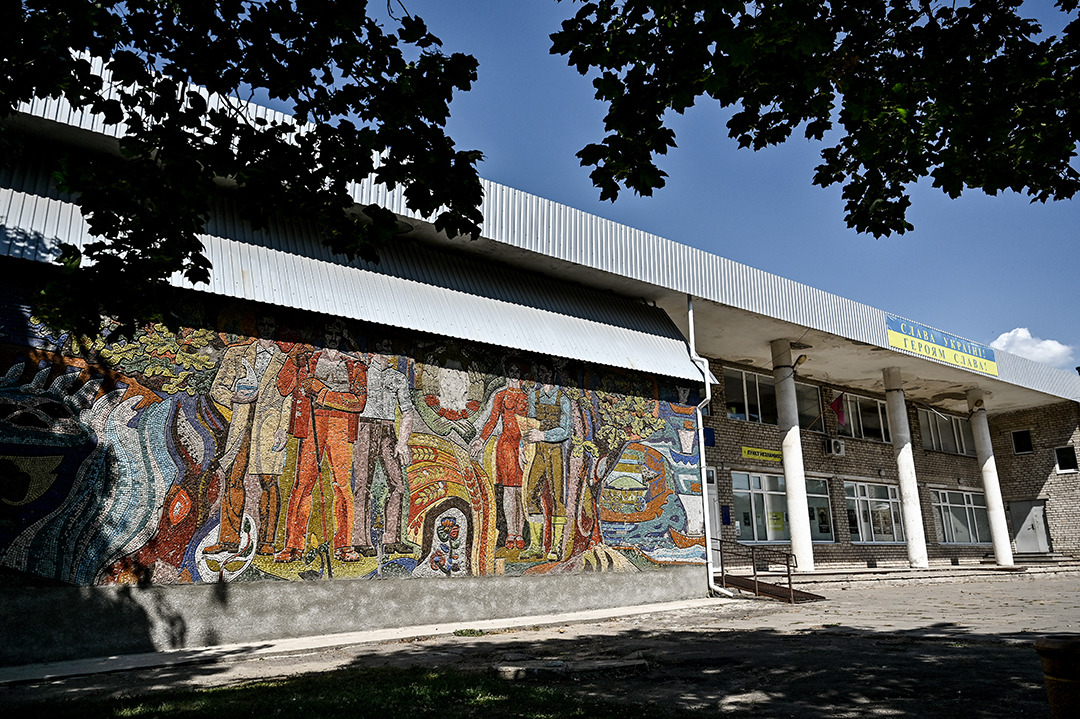
- They provided us with 12 million worth of pipes and equipment. And with our own resources, our communal enterprise replaced the most emergency section, because it was really a sieve.
COMMUNITY DEVELOPMENT PROGRAMS
- Do you have programs like "Food Security"?
- No, we don't have anything like that. In general, there are many programs, and the first among them is "Drinking Water". As for food security... There is a program for the development of medicine (we are still suffering in this regard). There is a program for the State Emergency Service. We created a municipal enterprise called the Local Fire Brigade, and today it is working. There was a competition; we received a fire truck from Germany through U-LEAD. Now we are getting another one. U-LEAD is an organization that has been with us from the very beginning. It told us what decentralization is, about hromadas' amalgamation, accompanied our first steps when we amalgamated - until 2020. We had a lot of questions, both financial and general - on the organization of hromada work. U-LEAD was constantly providing training.
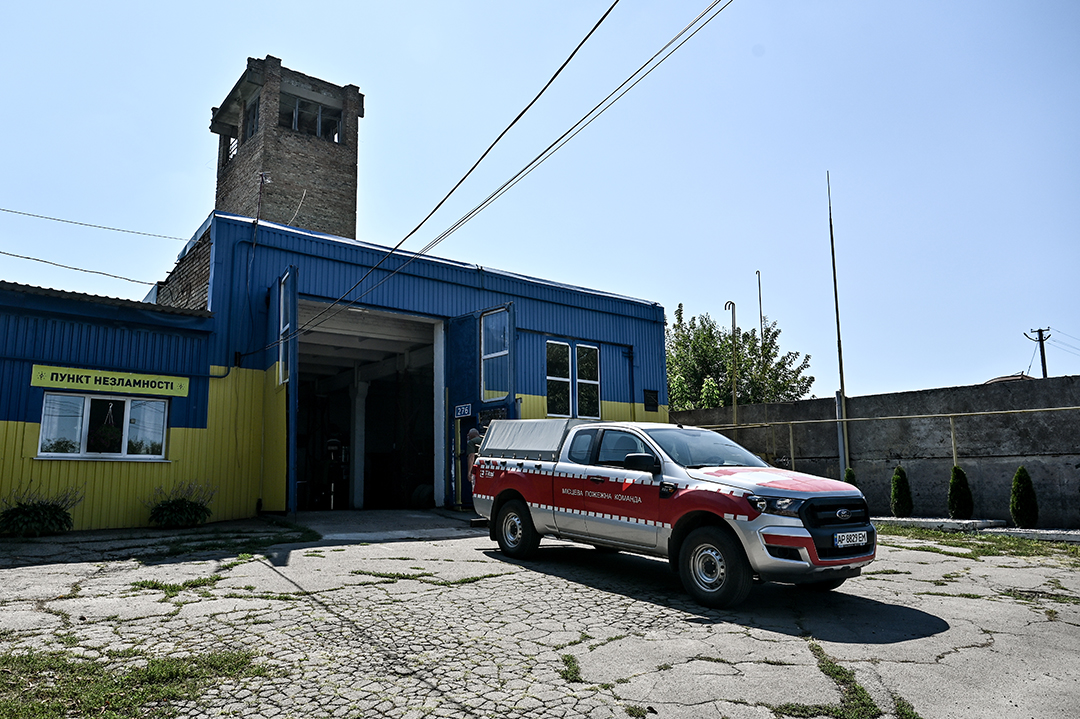
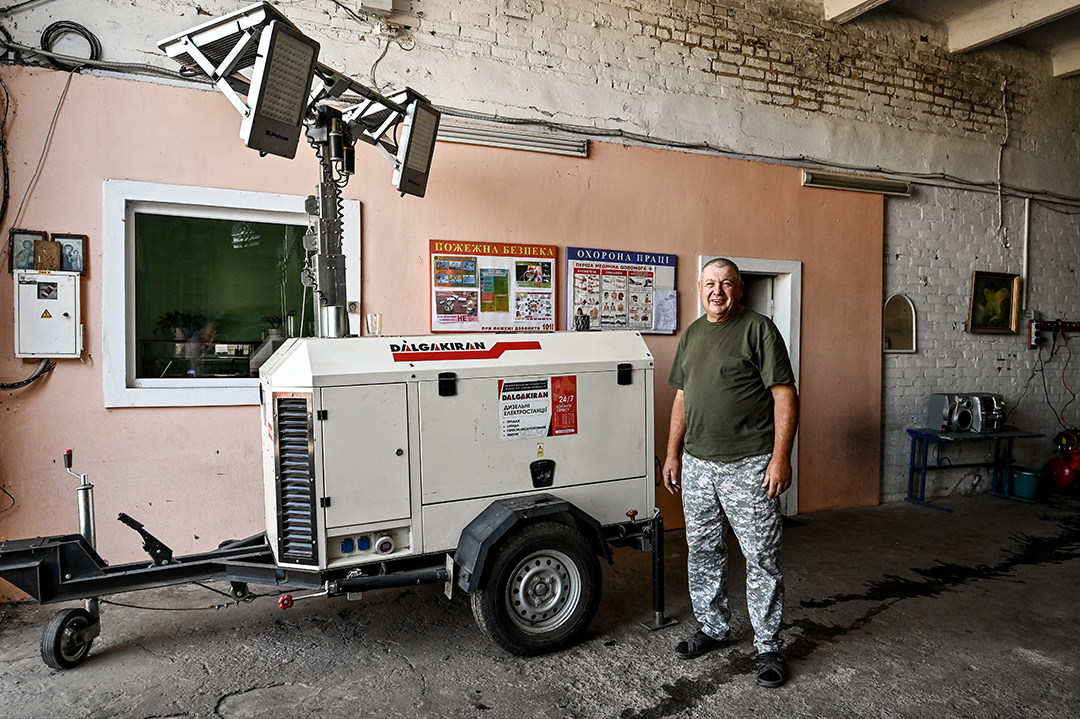
According to Alla Korol, the U-LEAD with Europe Programme helped organize the ASC's work.
- "This is an organization without which it would be very difficult to work. Moreover, we lack specialists. Both in social protection and in the same Administrative Services Center (ASC); state registrars were a very big challenge, because it is very difficult to find a specialist. But together we overcame these problems.
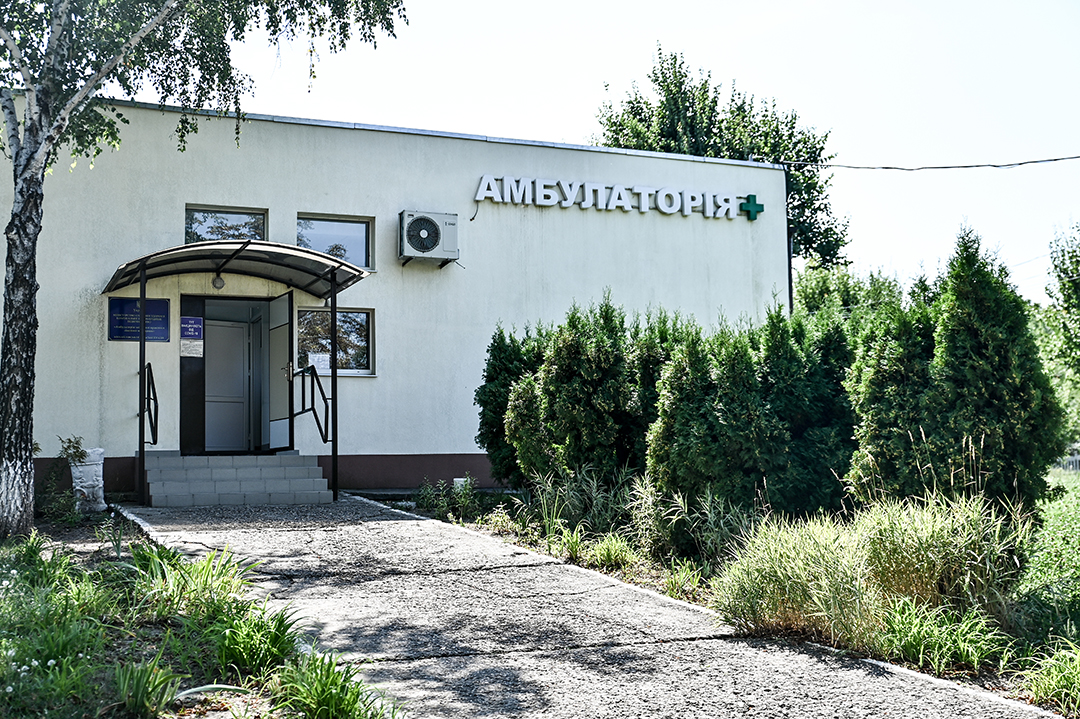
HEALTHCARE REFORM IN MYKHAYLIVKA
As for the healthcare program, the hromada still has some work to do.
- U-LEAD not only invited us, village and city heads, but also healthcare professionals who supported the healthcare reform at that time. We all attended the training without missing a beat, because it was new and extremely important for us - and extremely difficult.
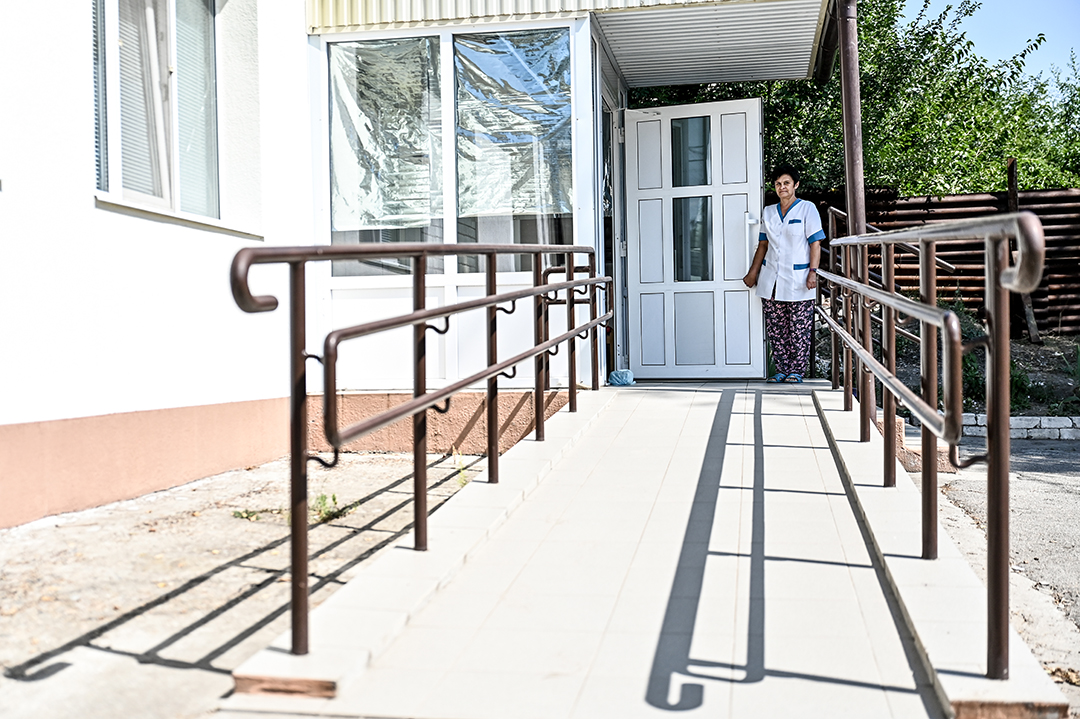
After completing the training course, Mykhaylivka created its own communal non-profit enterprise (CNE).
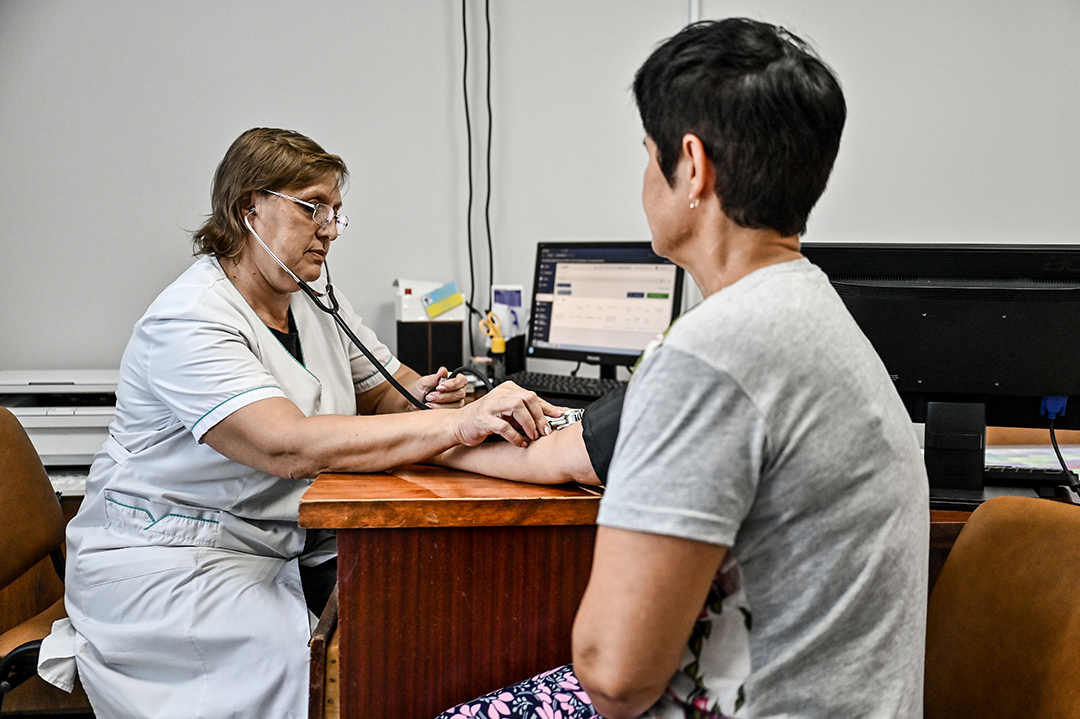
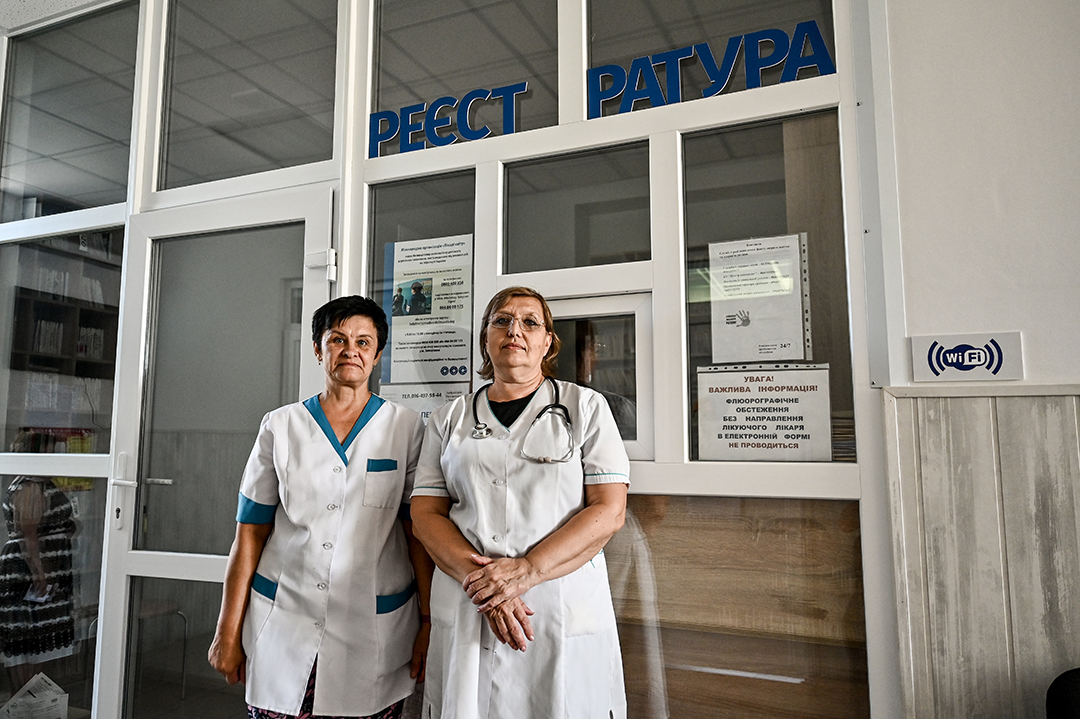
- We have no secondary healthcare in our community - only primary healthcare: two outpatient clinics and three paramedic and obstetric stations. There was and still is a problem of lack of family doctors. And when we created the CNE, we had a problem finding a director. There are very serious requirements, but we created our own medical communal enterprise, obtained a license, and even held a competition to appoint a director. We hired a person, but the district CNE convinced the doctors (we had only two) to stay with them. So now the CNE does not work here, and the former district CNE of Vilniansky works on our territory. Both doctors live on our territory, but for a population like ours, this number is not enough.
- So, when the doctors arrive, the CNE will start working right away?
- Yes, it will. We did not close it. We control the tax office, and in 2020, we overhauled our outpatient clinic in Mykhaylivka, meeting all the requirements - a ramp, doors, toilets - all of which we have met. Today, we are working on a project to reconstruct an outpatient clinic in Bohatyryivka. This is a large village; the premises are large, and the project envisages the construction of two apartments. We have interns with whom we have been working. They promise to come to work for us after graduation.
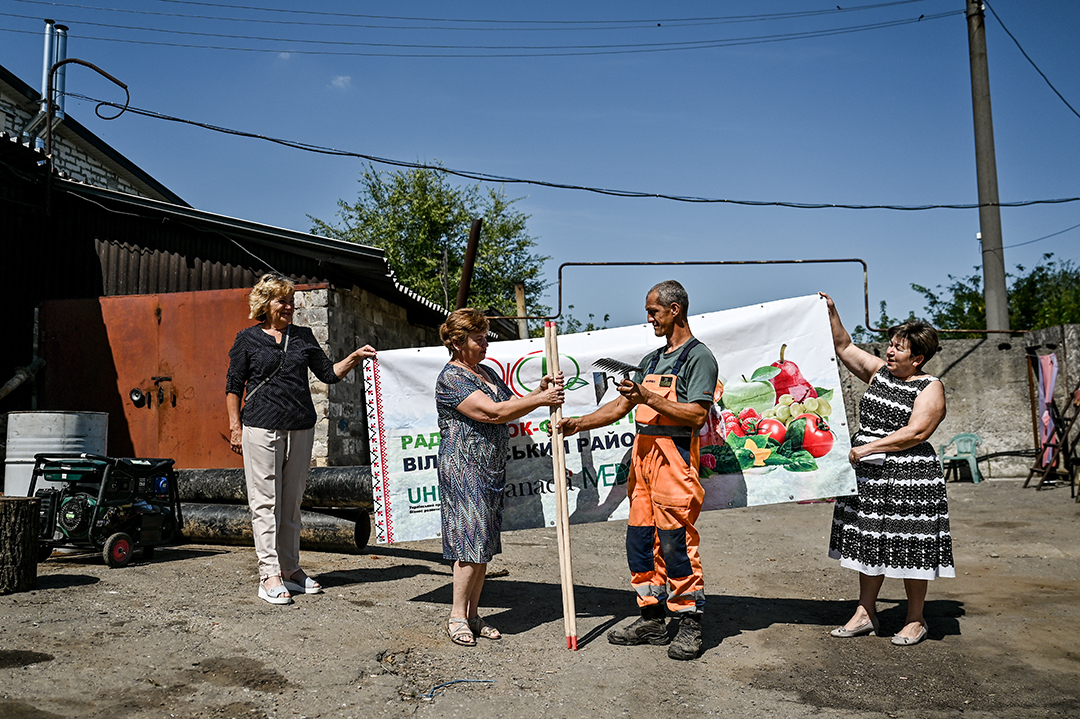
FARMING ACTIVITIES
What does the Mykhaylivska rural community look like today? It consists of 15 settlements, and all of them are "alive". There are none that are called "dying".
- Today we have about a 1000, as we call them, "real IDPs". These are people who came to us from the temporarily occupied territories or where active hostilities are taking place. These are Orikhiv, Hulyaypole, Vasylivka. There are also people from Enerhodar, Melitopol, and Mariupol. Those who wanted to find a job are all employed. Many re-registered with us from Zaporizhzhia. The city is also listed in the register of the Ministry of Regional Development as a place where hostilities may take place. As well as the entire Zaporizhzhia region. People from there also live on our territory, because we have 15 settlements and 132 garden associations. This is the bank of the Dnipro River! Each garden association has about forty garden plots (more than 5,000 in total). The owners believe that it is safe here, and they live here.
We don't have any business support programs as such, but we work very closely with the Council of Women Farmers in our area. We have participated in some programs. This includes the Victory Gardens program, where we received seeds and planting material, planted them, and got a harvest - both for ourselves and for sale. Just recently, we received assistance from the Council of Women Farmers for IDPs, such as shovels, rakes, and hoes, so that we could cultivate the land in the garden associations where they live and plant something. And last year they helped us with planting material, both for our farmers and for IDPs. And this year, they also helped us with feed so that we could raise some chickens and calves. Feed for pigs, chickens, and cattle. As for planting materials, it was potatoes, borscht sets: beets, carrots... We constantly cooperate with them. They help us, and in this way we encourage people to provide for themselves.
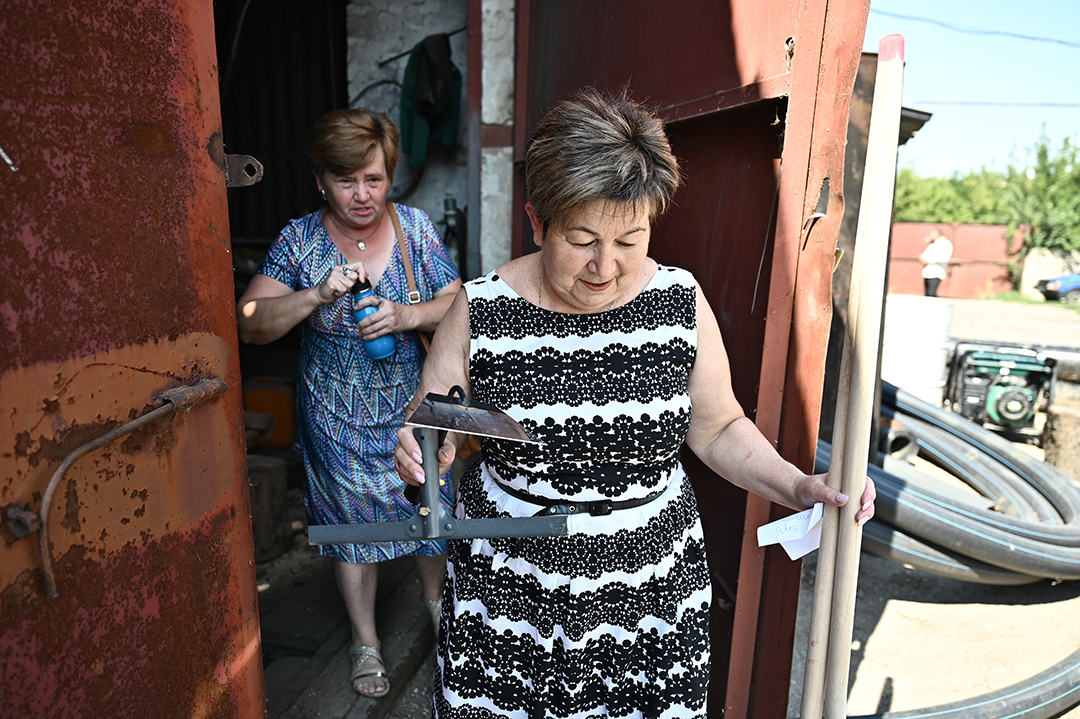
- What region does the Council of Women Farmers cover?
- This is our former Vilniansky district. In general, as far as I know, this is an all-Ukrainian organization. And we cooperate with our women who work and live in the community. We have three such active women. Once, representatives of an international organization, I think from the Netherlands, came to us, and our women participated in competitions to buy equipment to process fruit: to make drying, fruit paste... This year, the village has produced a lot of apples. So people can harvest them for themselves and give them to her for processing. And the farmer will find a place to send the finished product. The same Armed Forces of Ukraine, children in shelters, large families.
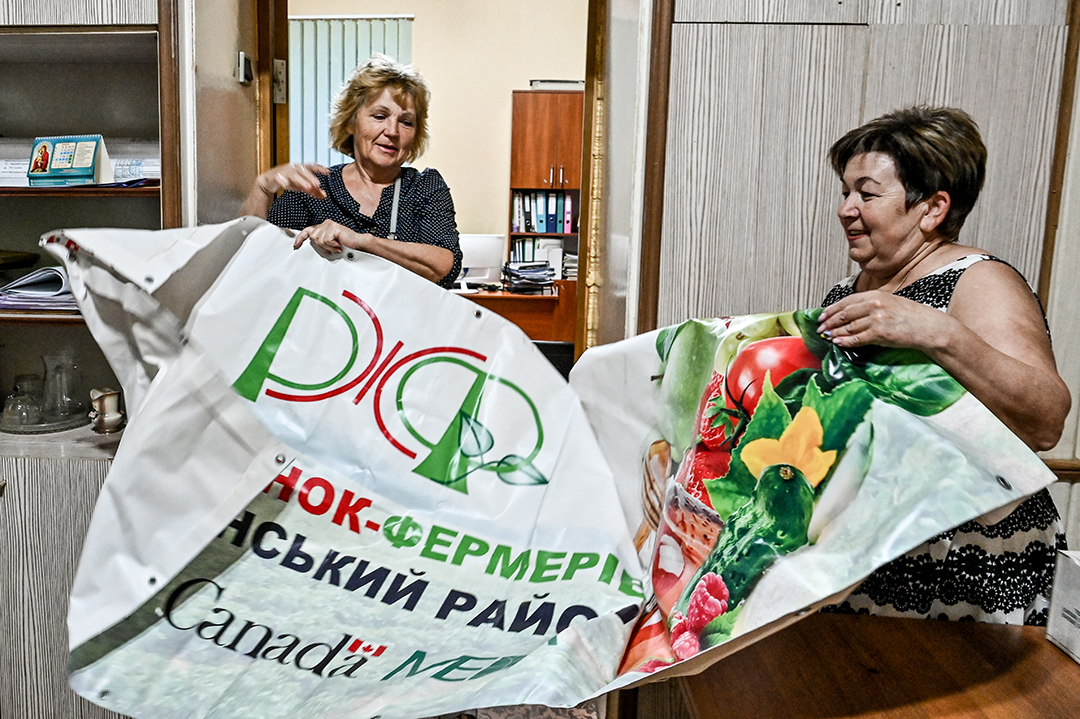
We have IDPs from Orikhiv. They work for a farmer who grows vegetables, and one of the women told me that in addition to harvesting vegetables, they also prepared them for the winter. They shredded cabbage, canned it with tomato juice, and took it to centers where people from their own community from the former Orikhiv district live. The village of Nesterianka. We took it so that people could cook that borsch or make cabbage pies. And not only that. This is also help for our people.
HELPING THE MILITARY
We couldn't help but ask how the community helps our defenders.
- At the beginning of the war, in 2022, we adopted a program to support territorial defense. The territorial defense unit was based here, nearby, and at their request, we bought everything from bayonet shovels to freezers and generators. We are doing the same today. We raise funds, make donations, sew underwear for them, help our hospitals - not with money, because we cannot spend budget funds - but everyone who can contribute as much as they can, and we buy fabric. We have seamstresses and volunteers who travel and deliver food. Right now, we have just been collecting potatoes, carrots, and beets to bring the guys to "zero". We also have a program under which we bury our guys who died in the war, entirely at the expense of the community.
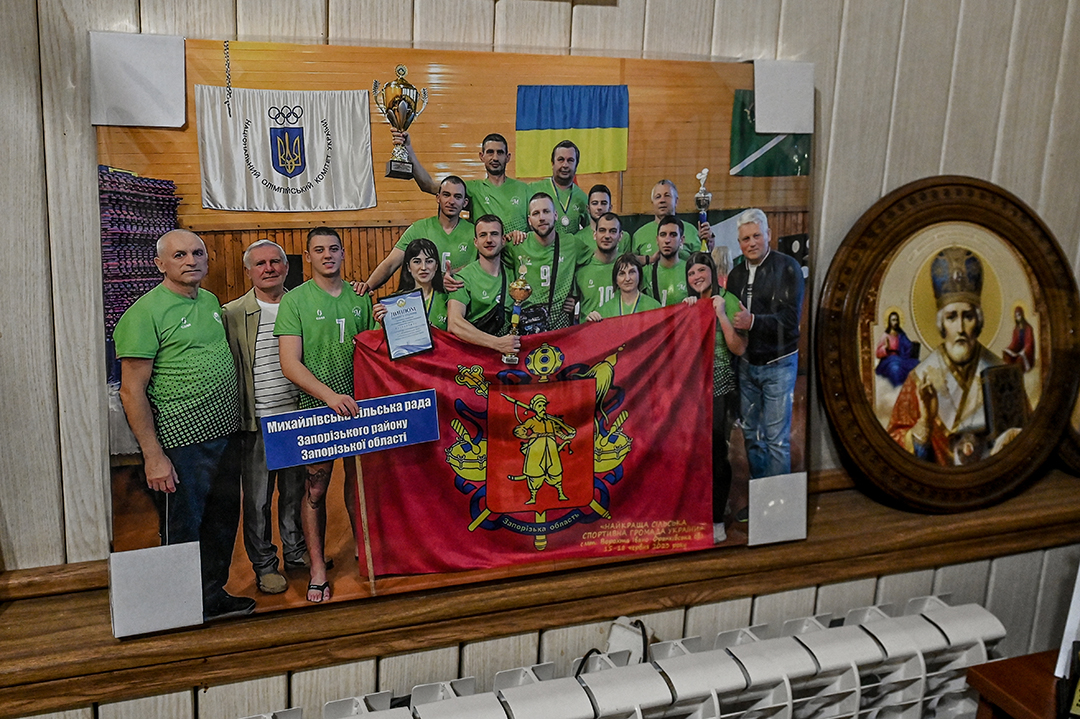
They also allocate funds for the treatment of tuberculosis, cancer, orphan diseases, strokes, heart attacks, etc.
- People come to us, and we provide them with financial assistance. We support our bedridden disabled people, transfer funds to the Vilniansky CNE for the purchase of diapers and disposable diapers... We constantly work with charitable foundations that bring us the same hygiene kits and food for children. We provide all of our residents and IDPs with these on a monthly basis.
Finally, Alla Mykolaivna shared her thoughts on the changes in the lives of local communities:
- I am delighted with the decentralization reform. When I meet with citizens, I tell them: "Military victory is one thing. But we have to achieve another one. Everyone has to start with themselves."
Mykhailo Bublyk, Cherkasy


